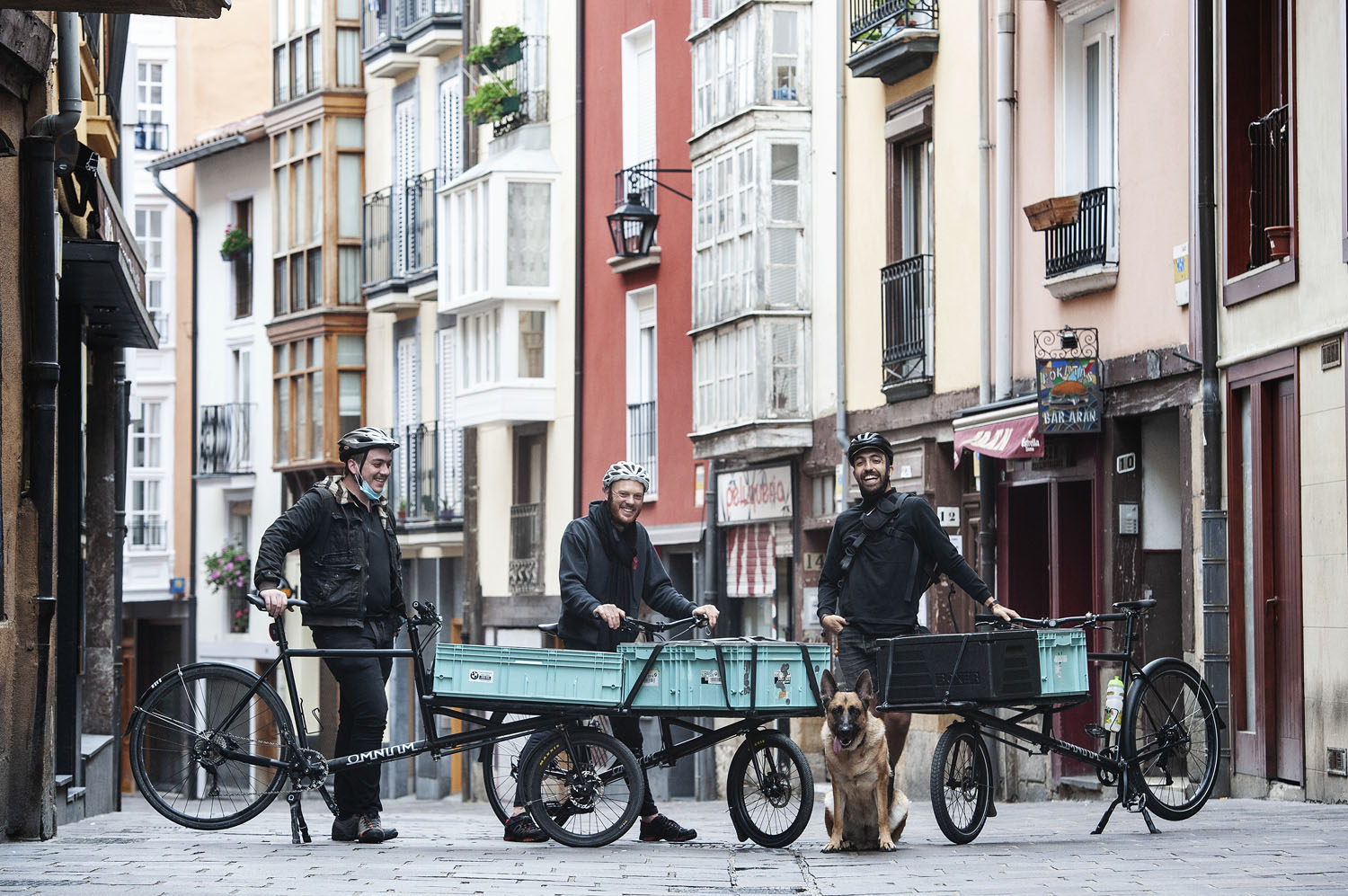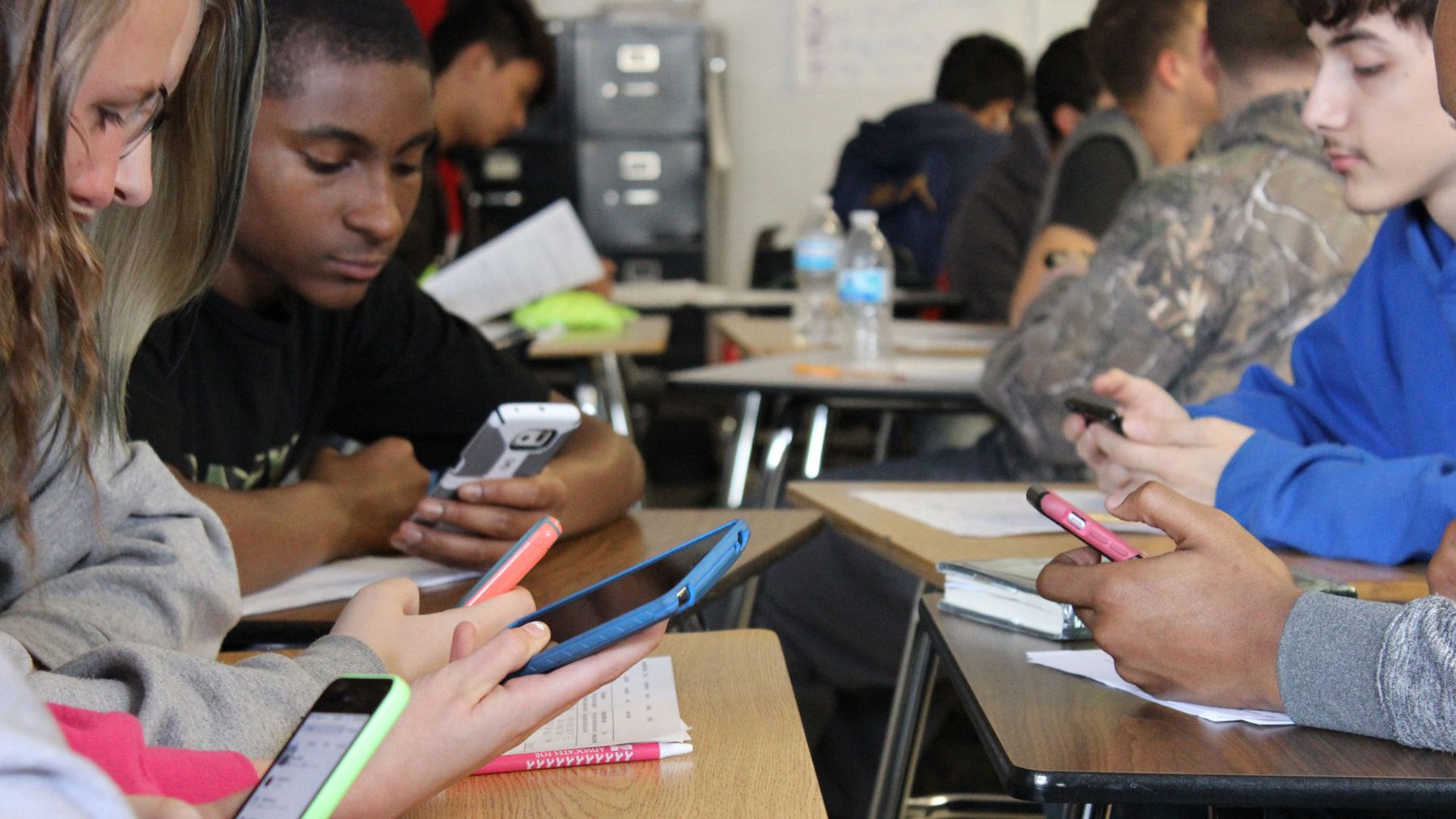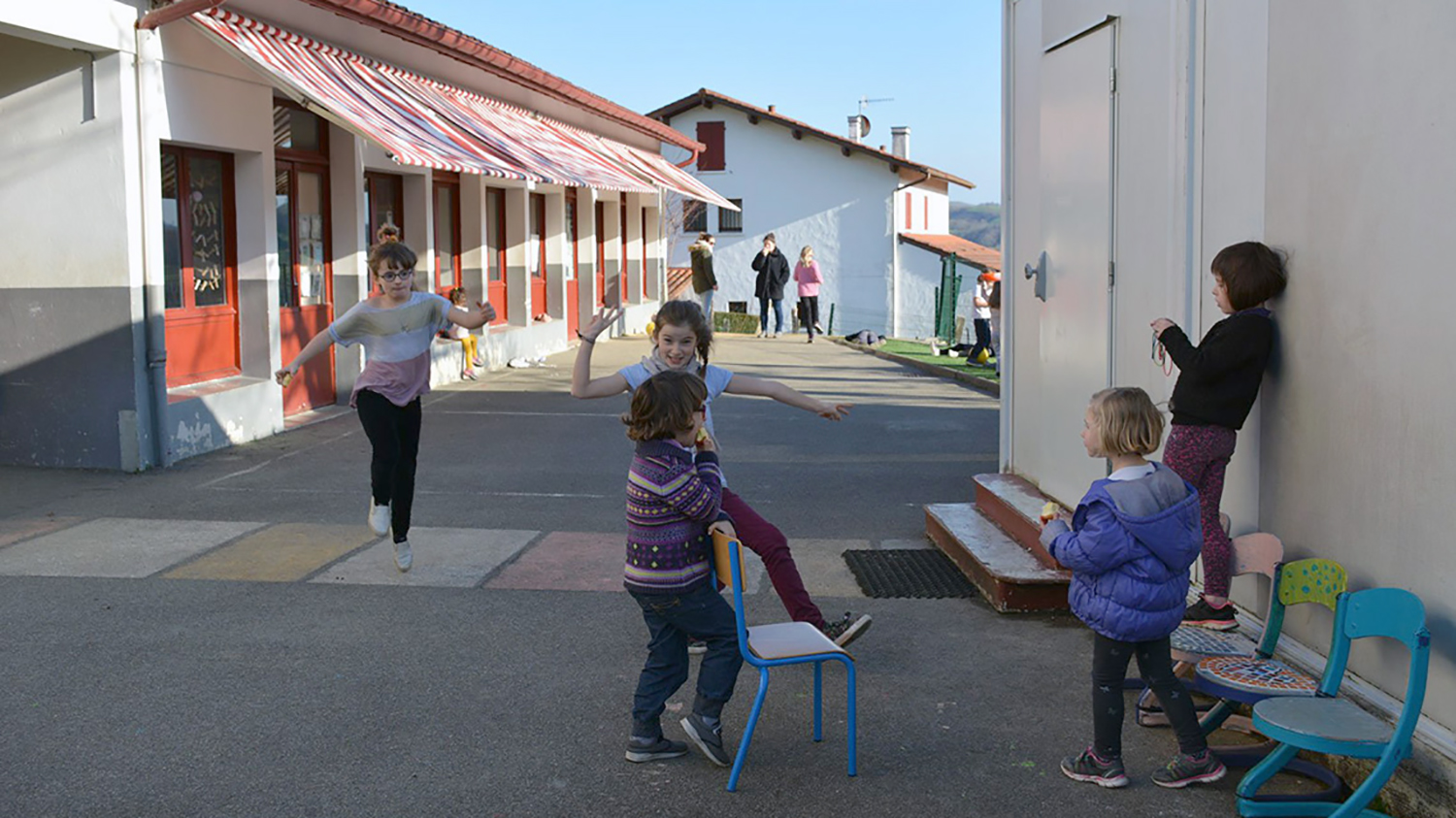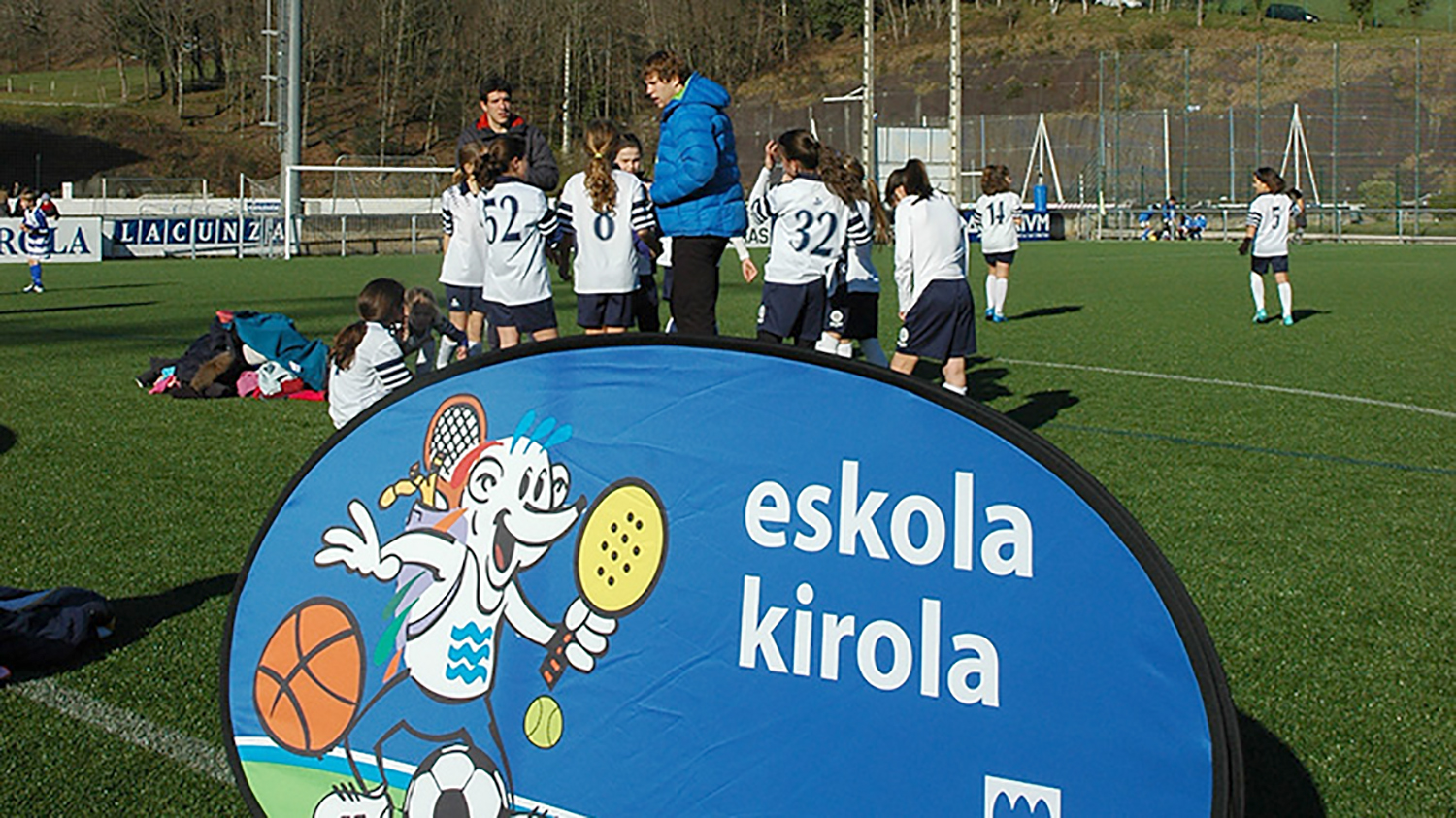"It's harder to conduct a participative udaleku than a programmed camp."
- At this time of enrollment in the colonies, Ausartu Kultur Elkartea has presented us with a project in three columns: instead of the activities programmed by the monitors, the program distributed among all youth and adults; instead of the children colonies, the offer for children up to 18 years old; and instead of the macro-colonies model, groups up to 30 people to create a family environment.
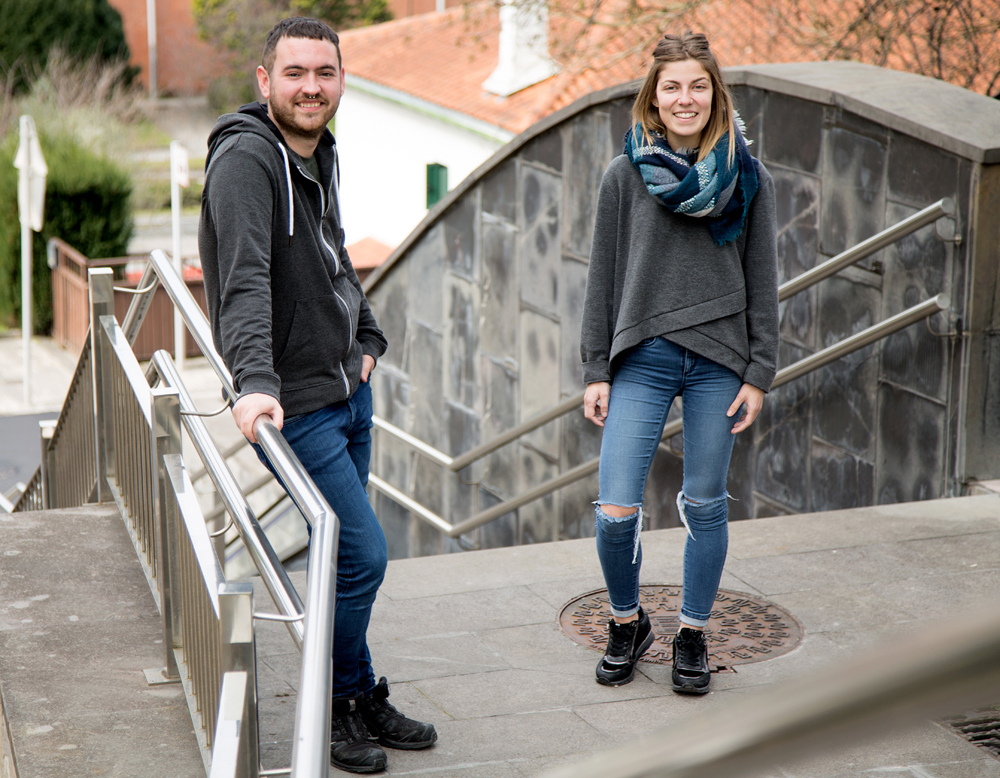
Aitor Altuna and Edurne González are the creators and promoters of Ausartu. They have been educators, monitors, trainers, dynamizers… in many leisure and leisure projects, and now they want to take advantage of all that experience to set in motion a camp of their own that addresses the deficiencies and deficiencies they have seen in these projects. For example, it has happened to them that at the age of 15, the young man who has spent very well in the summer camps resigns to the age of 16, but who refuses to respond by age. Thus, the offer of the Bizkaina Basketball Federation is up to 18 years, divided into three groups: Young people 12-14 years old, 14-16 years old and 16-18 years old. A one-week stay has been planned with each group at the Santiagomendi hostel in Astigarraga.
The
challenge has become another characteristic that, in general, has been lacking in the Summer Colonies by overcoming the educators' "action": “Let young people feel part of the project and we will achieve a leisure project that is everybody and everyone and everyone.” Altuna says that educators often have “an activity”, “at all times we have programmed some activity, at all times in motion and at full speed … and we want to address a different philosophy”. For those who think that this flexibility gives less work, González has made it clear that: “Carrying out a participative udaleku is much more difficult than a programmed colony, because you have to listen to the young and you have to get the resources from today to respond to those needs they have expressed. Attitude is key, you have to be prepared to respond to new needs that arise. Sometimes you can't do everything you want, but you may adjust. We will be 34 people (up to 30 young people and four or five educators) and among those 34 people we will create these colonies. We will have basic programming, but always open, ensuring the ability to adapt and change.”
"If I am able to win your trust and tell you that your monthly payment has gone down and it hurts you don't want to take concrete action, it's a sign that surveillance is guaranteed."
They aim at real participation, but what is real participation? “What action will we take today, this or this? And doing an act that gets the support of the majority. We do not understand participation,” explains Aitor Altuna, but we wonder what do you want to do? And we don’t like the approach of ‘OK, now you organize’. We want to create a community within the camp, agree with each other, decide and put the process and the means for this to go ahead. In some colonies the ‘day to decide’ is usually done: the children themselves make an assembly and choose an action, a game, but we want to go beyond playful programming, we want to organize the day and the week, because the educators also want to be part of the assembly; what we are going to decide is that it is the fruit of a reflection, it is to organize a week that responds to some needs (in the broader sense). At night, for example, in all the colonies, educators gather to assess how the day has gone, but they do not do the same with the young, they do not take a margin to really value the day, beyond the dichotomy “good, bad”. We want to make the assessment between all and all.”
For example, Edurne González added, you can decide to take an hour each afternoon to tell the next one. Or you can agree that crepes want to eat and some go shopping and some look at the recipe and organize the preparation. “On the first day, you may tell us that you don’t know or that you don’t know how to organize what you want, but the idea is to turn that around.”
In this objective of returning the decision-making capacity to young people, González sets another example: “It’s an anecdote, but on the enrollment sheet to point to the colonies, the parents have a blank space to inform about their child, because we have added a box directed to him to present it. Parents are asked to describe the child, but how are we not going to allow the person who goes to the camps to be described? And the difference is tremendous, as some parents ‘don’t eat salads’ and they usually put information, and young people talk more about their own nature.” Altuna has stressed that they will play the same with the photos: parents are often asked for permission to put on social networks the photos that have taken their children in the summer colonies, etc. ; “We also ask the protagonists, because the 15-year-old can tell them that he does not want his face to appear on that site or on another. If what we are spreading is your image, it will have something to say.”
The Ausartu proposal
has a third basis: the existence of small colonies in number. Relations between 34 people are expected to be closer and stronger than those between 70 years of age. They say that the small group allows for more personalized care, which allows for more intimate care. “There is a limit between educators and adolescents, a limit that must be respected, but if I am able to win your trust and tell you that you have lowered your menstruation and it hurts that you do not want to take a concrete action, that surveillance is guaranteed. Let young people feel close to us and willing to listen and help, so we understand mutual care”, explained González. For this, he added, it is important that “young people do not feel incompetent, because we often tend to do so. At the same time, I cannot ask the young man to express his feelings and emotions if I hide mine. If today I’m wrong and it hurts, I’ll be transparent and honestly explain that I’m wrong.”
They have also stressed that the small group offers the possibility to act calmly, flexibly and flexibly, as it is easier to circumvent the control that large teams need.
"You're going to assimilate less content than in school, but from the experiences and that uncertainty, from the uncertainty that gives you to spend 24 hours with another 30 young people, you'll learn a lot"
Altuna and González want to acknowledge the
value of a space that is not judged by non-formal education, because it educates people, not with textbooks, but with experiences. “In the colonies, for example, if the educator is to spend a week out of the house and get used to it. You may feel bad or weird outside the house and you’ll have to recognize that you’re wrong and work on how to manage your frustrations,” says González. “The management of feelings, relationships and the creative process are almost naturally worked on non-formal education,” says Altuna. You're going to internalize less content, but from the experiences and that uncertainty, from the uncertainty that it gives you to spend 24 hours with the four educators and 30 other young people you've just met, you'll learn a lot. Such an experience puts you in contact with yourself, with your abilities and impossibilities.”
In Gonzalez’s words, colonies are a space to be as it is, “because you don’t have people who limit you on a daily basis; in the colonies they won’t judge you, and in those days you can feel freer to explain your emotions”. Everyone will come with their backpack, there may be victims of bullying, and summer colonies can be the liberation zone of this backpack, an opportunity to empty what is inside. “In seven days we will not find the solution, we will not know so much its environment and its reality, but in those seven days we will find a comfortable and safe space, a space to be quiet and comfortable, and that it will return with force to its everyday reality.”
The Department of Education doesn't understand why public employees have gone on strike. He's got to ask the LAB Syndicate. This union signed an agreement with the department in April 2023. Two years later they have also called for a strike because, unlike the previous ones, the... [+]
Erretiratu berri den lankide-ohi baten omenez, Historiako irakaslea. Bejondeizula!
Hezkuntza-legeek azpimarratzen dute zein garrantzitsua den ikasleengan pentsamendu kritikoa sustatzea. Baina irakasle-klaustroak, garai batean ideien eztabaidarako eta proposamenak... [+]
I received your e-mail in personal mail on the strike portals. At first, like many others, I thought it was to let you know what options we have in the face of the strike. But no, the e-mail received was a political and communicative movement against the strike.
I will confess... [+]









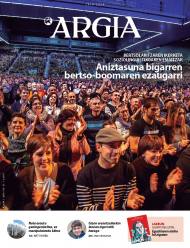

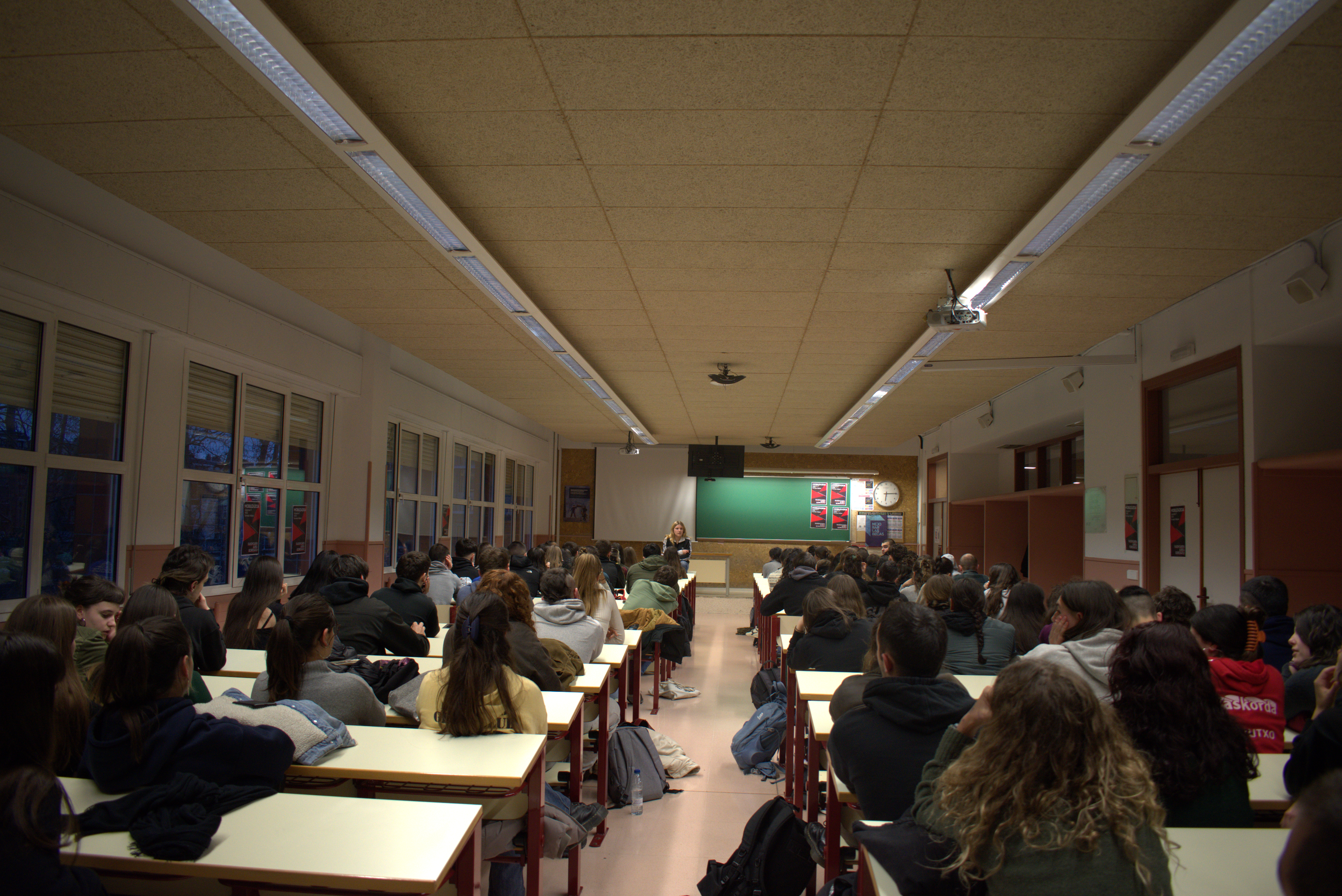

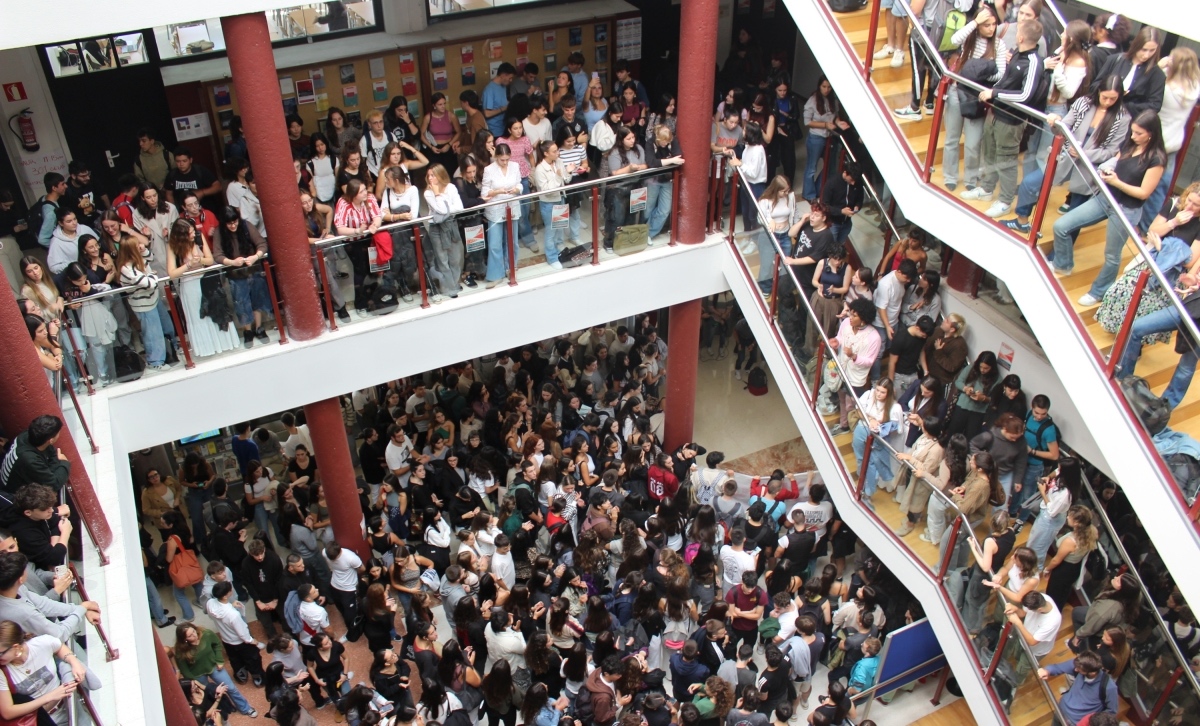
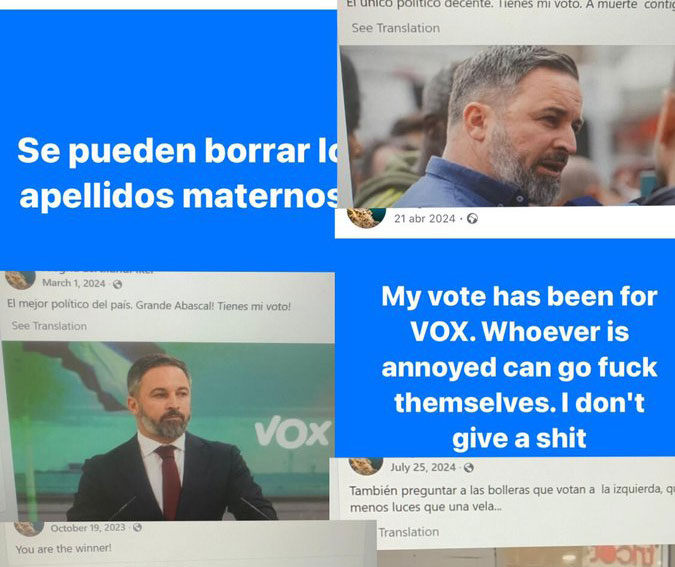
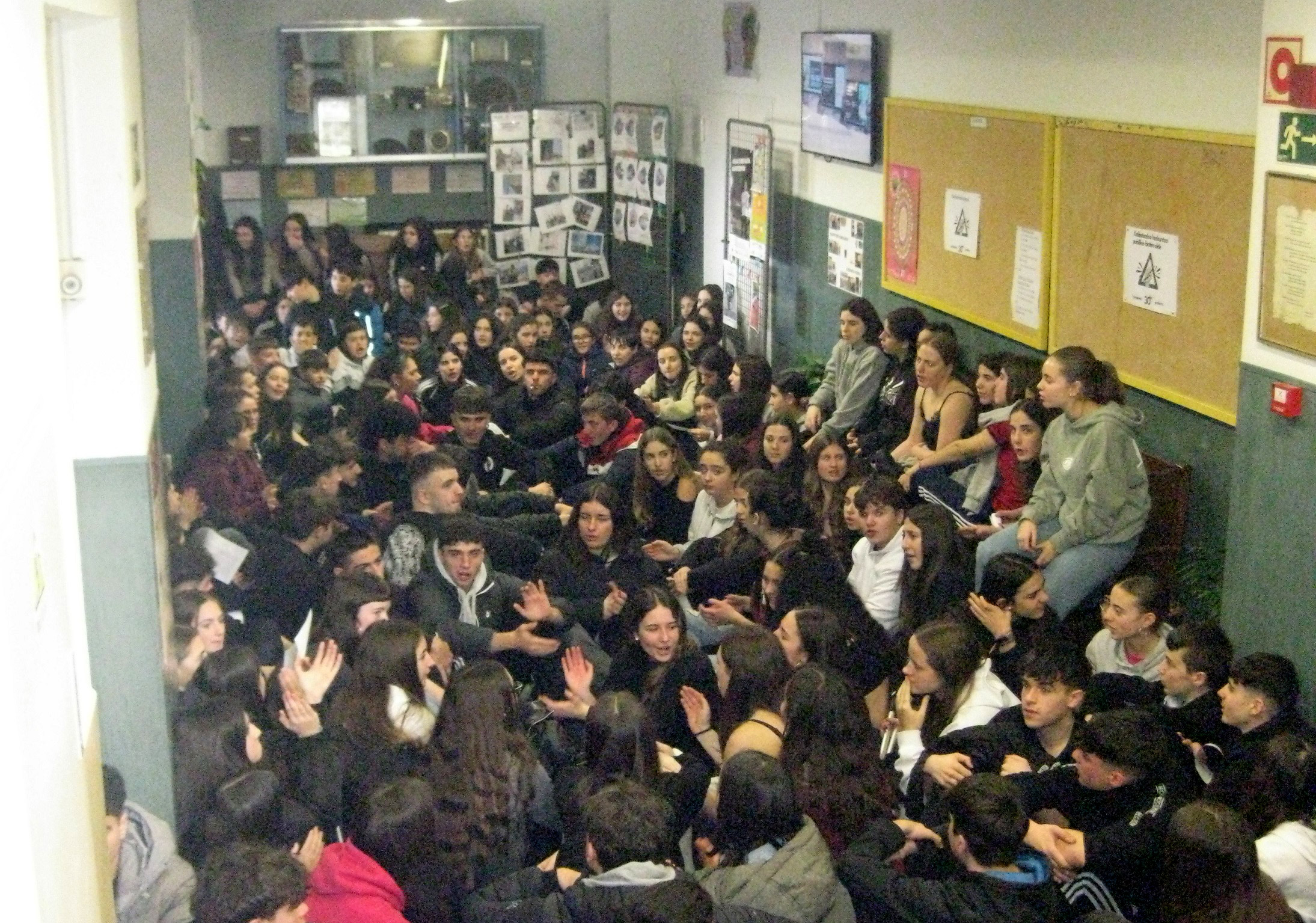



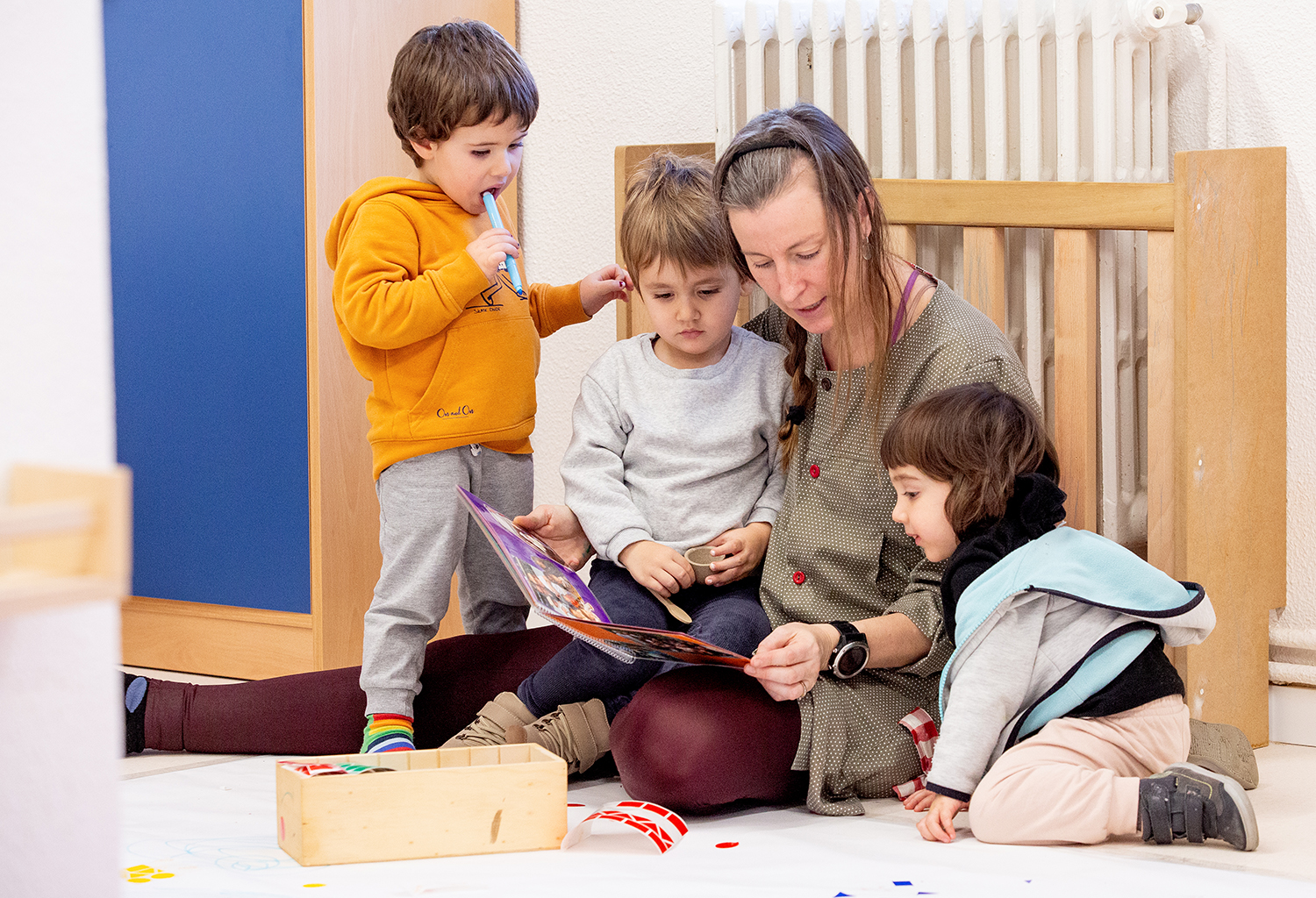
.jpg)
